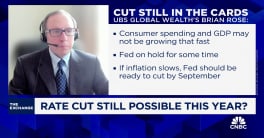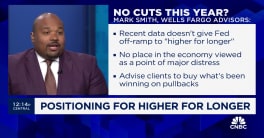Elevated food prices are caused by increased global demand that shows no signs of letting up, and monetary policy should stop excluding food prices and begin to focus on total, rather than core, inflation, wrote a former official from the Federal Reserve.
Karen H. Johnson, former director of the Division of International Finance at the Federal Reserve Board of Governors, said food prices have seen "extraordinary increases" in the previous year, but food inflation has been persistent since 2003 and the global forces responsible for soaring prices will likely continue in the medium-term.
"(T)his is not a one-time shock that moves the price level but drops quickly out of measured inflation. If central banks are to achieve goals of moderate or low inflation over the medium term, they will need to adjust their tactics to allow for rising food prices," she wrote in a paper for the Council on Foreign Relations.
"From 1972 to 2003, the IMF index for food prices . . . rose at an average annual rate of about 1%. From 2003 to the present, that index has risen at an average annual rate of about 11%," she said.
"With respect to monetary policy, the U.S. Federal Reserve should no longer use the tactic of monitoring 'core' inflation, a measure that excludes the newly significant behavior of food prices," she said.
"Core" prices are preferred by the Fed because they exclude volatile food and energy components and are supposed to yield a better look at underlying inflationary pressures. Yet in recent months some economists have been arguing that surges in energy and food prices are no longer volatile, but persistent.
That's because "economic success in the developing world" is raising people's standard of living, Johnson said. Better living conditions means more food may be consumed directly, and more grains are consumed as diets improve to include more meat and dairy products.
Johnson said GDP growth in regions such as India and China can be expected to grow faster than in the developed world, which will continue to create higher food prices in the medium-term.
"It seems very unlikely that over the next five to ten years global food prices will retrace the increases that occurred since 2003 and return to the level of prices at that time," she said.
"The challenge for policy is not a statistical one of analyzing past and current data and looking for evidence of a change. It is rather a judgment call, in which analysis of the reasons for recent events are examined in an effort to draw forward-looking implications," she said.
By Patrick McGee and edited by Sarah Sussman







